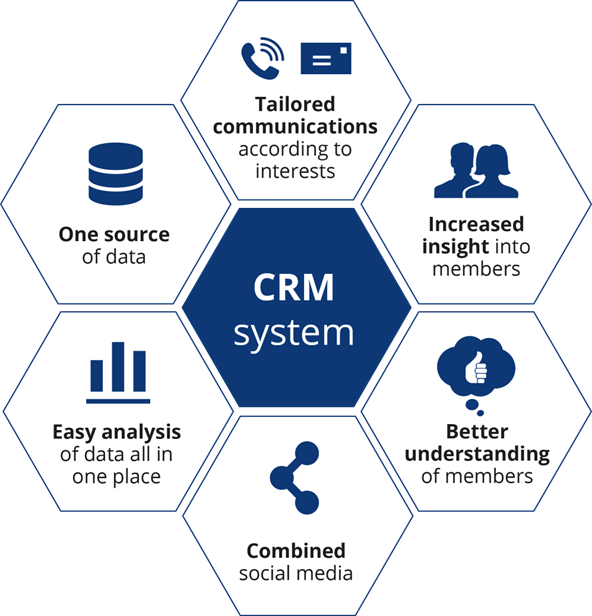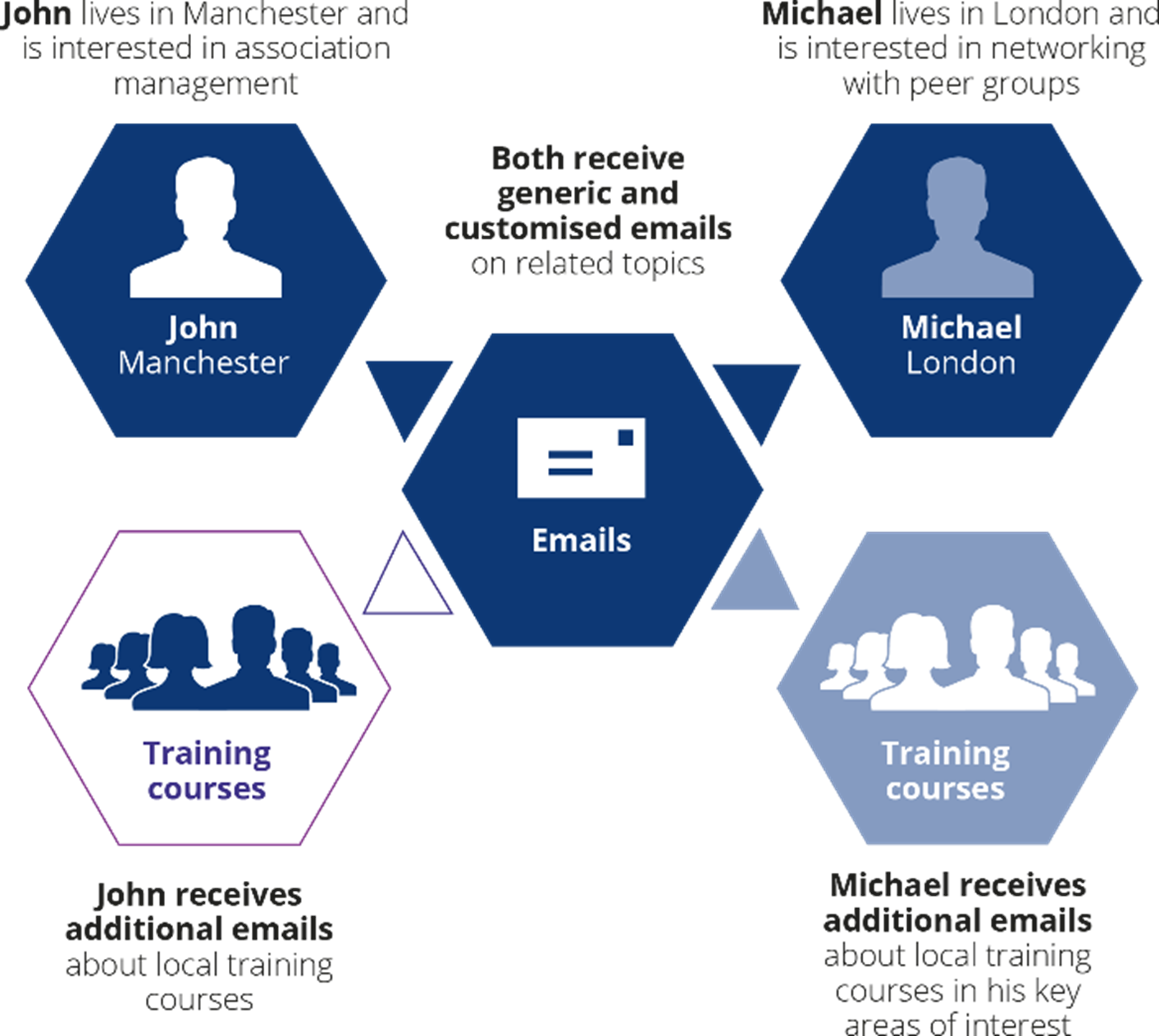3 Manage potential members differently
A CRM system is designed to not only manage existing customers but also prospects. Prospective members can be nurtured separately rather than be treated the same as existing customers. This will increase your conversion rate from potential member to member as prospective members feel more valued and less like they are on the same treadmill.
4 Manage business processes centrally
CRM systems feature ‘workflows’, which make it much easier to manage business processes than with traditional databases. Approval processes, escalation processes, complaints handling, membership joining and on-boarding, reminders and alerts are all features of any modern CRM system.
This means a CRM system is not only for your marketing and sales departments but can help all levels of business. Dashboard reporting, for example, is ideal for middle and senior management roles to quickly identify levels of performance in key areas and help in making key strategic decisions going forward. A CRM system also allows all departments to see the shared data on a member, ensuring transparency across the organisation.
5 Identify trends quickly
Being able to analyse all data in one place means you can quickly spot trends in your membership, for example if there are lots of people joining or leaving. This means you can react quicker to opportunities or threats.
6 Combine your social activity
A traditional database can’t help you with social media management but a CRM system can. You can integrate your social media platforms with your CRM system, meaning you can track members’ communications via these channels; send social media messages via CRM; identify topics being discussed; and track social sentiment, amongst other things.
7 Integrate all your systems
CRM systems are designed to be integrated with other systems, making the process of sharing data between them easier. Such integrations include your website, finance and email service provider. You only need to access one system to manage various aspects of the organisation.
8 Improve your ROI
You’re possibly thinking a CRM system is much more expensive than a standard membership database. In fact they are often on a par, or very close, but the return on investment is much more in CRM’s favour when compared to a traditional system. You can start analysing training course sales, for example, and identify opportunities to cross-sell other courses or additional products in the same area of interest, improving your ROI with every extra sale.
9 Increase knowledge sharing with your peers
A CRM system will allow you and your colleagues to create & share notes against contacts directly within the system on things such as phone calls taken/made, emails received and information sent. You can also create tasks and assign to colleagues, wherever they are based.
What’s the best CRM system for me?
There are a number of CRM systems in the marketplace that cater for membership organisations but how do you know which one to choose? When reviewing possible systems ask yourself:
Is it easy to use?
If it's not easy to use, people simply won't use it, which will render it pointless and make it an expensive address book. Getting people to use it is much easier if it accessible from another regularly used application such as Outlook.
Is it scalable?
You might only have a small team now but what if you grow? You should make sure the system will work equally as well with many people using it. You should make decisions based on your organisational aspirations and not the limits imposed by your IT systems, e.g. to grow headcount or make parts of the CRM available to your members via the website.
Will it grow with the organisation?
A CRM system must have the functionality to meet your current needs, as well as future-proof your organisation as its needs change over the coming years. Think big, start small and scale quickly.
Will it integrate with your other existing systems?
One of the main benefits of a CRM system is that it connects and works with other systems such as finance, email, website etc. So it’s important to make sure the system you’re looking at fits in your existing business and equally any systems that may be due to be implemented in the future.
Does it work on mobile/tablet devices?
With more and more of us working remotely a good CRM system needs to be useable wherever your team is based and whatever device they’re using. The ability to work effectively using systems no matter where you are has become more and more important to recruiting and retaining staff.
Is the organisational fit right?
It's not just about the system you choose, it's also about choosing the right supplier. Can you work with the people in the supplier? Do they understand your needs and what you're trying to achieve? Do they understand your business properly?

